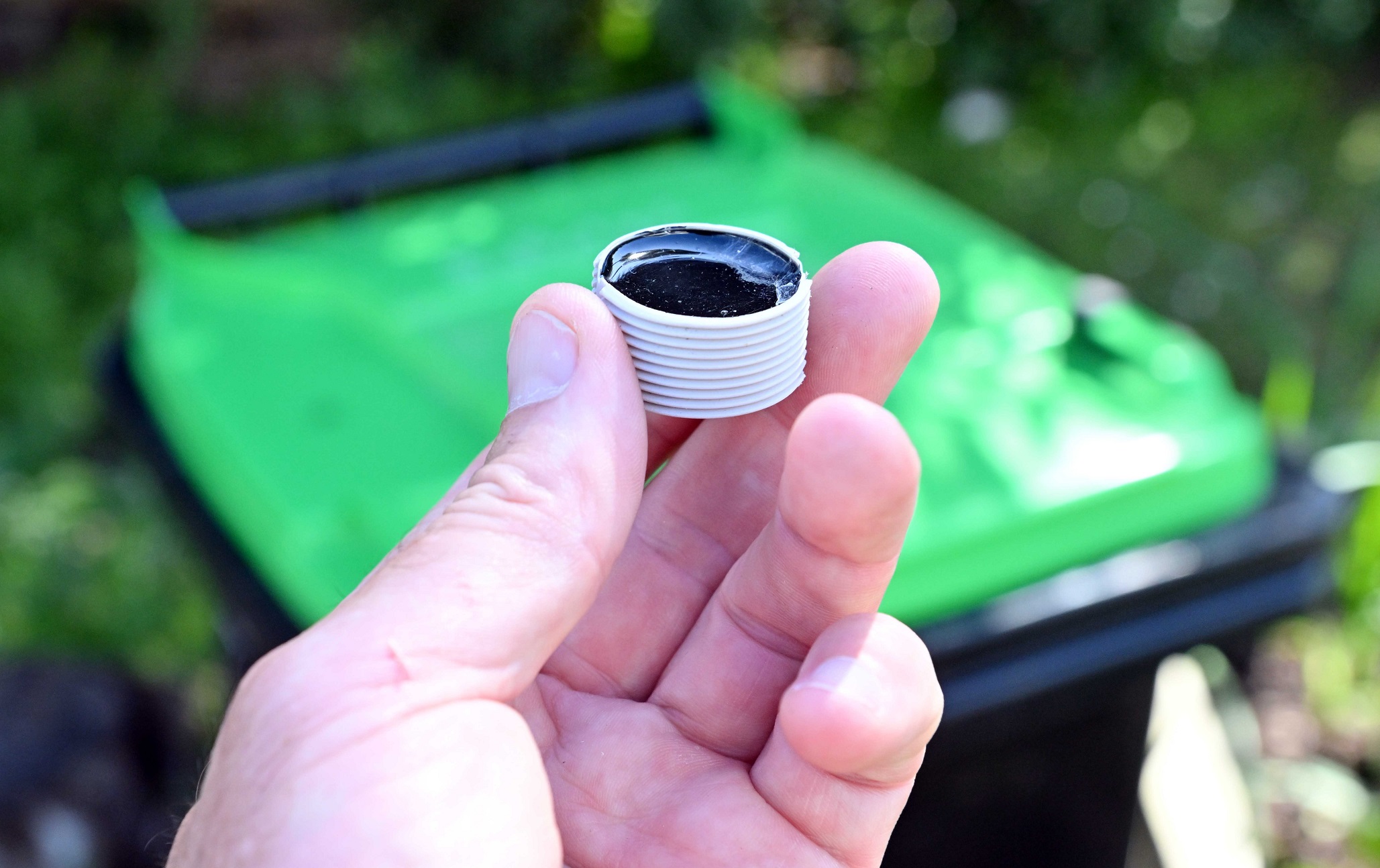
The devices — radio-frequency identification (RFID) tags — are prevalent on red-lidded and green-lidded bins, the Otago Daily Times has observed.
However, the Dunedin City Council said the technology was not being used as part of the rubbish and recycling kerbside collection service.
The council has not said to what extent the dormant devices were deployed — saying "some" tags were fitted.
New bins were sent to more than 52,000 households before the revamped service took effect in July last year and most such households received two — a red-lidded bin for general rubbish and a green-lidded bin for green waste and food scraps.
Yellow-lidded wheelie bins for recyclable material are also part of the service, but they were introduced in 2011, so any RFID tags for them would logically be on new replacement bins only.
The council confirmed the existence of the devices last week after the ODT sought clarification and produced images.
They retail for about $1.50 each.
"Some of the newer" kerbside recycling and waste bins had the tags, a council spokesman said.
"Having these fitted during manufacturing was a negligible cost compared to retro-fitting bins should we opt to use this technology in the future," he said.
But the council had no such plans, the spokesman said.
The Central Otago District Council had RFID tags under some of its kerbside bin lids, but said on its website they were inactive.
Such tags contained bin serial numbers and they were now fitted as standard by the bin manufacturer, the council said.
"They work when a bin is lifted and gets close to a receiver on the kerbside collection truck.
"The receiver can read this serial number, allowing the truck to identify if the bin being collected is located at the property the bin was assigned to.
"This can be used to ensure that ratepayers are getting the bin services that they are paying for in their rates."
The district council chose not to use the RFID tag functions.
The Dunedin City Council did use the tags once.
"Tags were scanned as part of the rollout to ensure bins were delivered efficiently, but our current fleet of kerbside collection trucks are not equipped to scan the RFID tags, and we have no plans to implement this technology in the foreseeable future," the spokesman said.
The council upgraded its service last year, ending the use of rubbish bags and collecting household waste from wheelie bins instead.
It also introduced a separate collection for garden waste and food scraps.
The city council charges a flat rate to ratepayers who have access to kerbside collection.
Christchurch City Council started retrofitting bins with RFID tags in 2016.
About 16,000 bins had been unaccounted for in the city since the February 2011 earthquake, when areas became off-limits.
The Timaru District Council used the tags from 2018 as part of an effort to "track down all our bins to ensure everyone in the district is getting the service they’re paying for".












